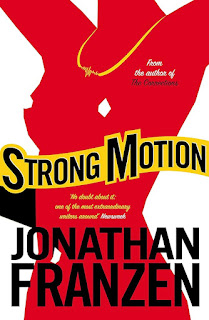Books I've read. Books that have had an impact on me. Books that didn't, but that many believe should have.
Sunday, 17 December 2023
Last Night in Twister River - John Irving
Strong Motion - Jonathan Franzen
Half of a Yellow Sun - Chimamanda Ngozi Adichie
I almost feel guilty to say that I didn't particularly like this book, considering the kind of reaction that it generated worldwide. Interestingly, the few negative opinions that I found online came from Nigerian readers.
While I obviously agree with the main premises (Igbo people telling the stories of the impact of the Biafran War on their communities, and the fact that the world should remember the suffering it caused), I think the book ultimately lacks depth, chiefly because of how stereotypical so many characters looked.
We have the armchair academic revolutionary (who oddly enough never talks about other revolutions - in the 1960s! - or about his academic interests), the well-meaning but out place white man, the houseboy who gets educated and reaches new heights (despite some very serious lows), a couple of cartoonish depiction of Western journalists, etc.
The worst is the absolute perfection of Olanna, which I found rather tedious. I really wish we heard more from her twin, who to me was by far the most interesting character of the story.
On top of that, while the context of the story was quite clearly the 1960s, I felt that the interpersonal dynamics between the main characters were much more current (in particular considering the fact that I suspect Nigeria didn't quite experience the sexual revolution of the 1960s in the same way as the Western world).




